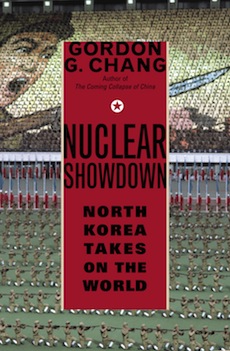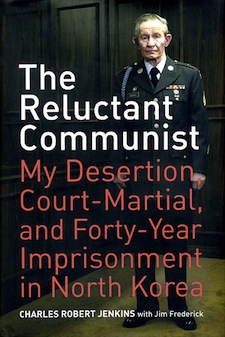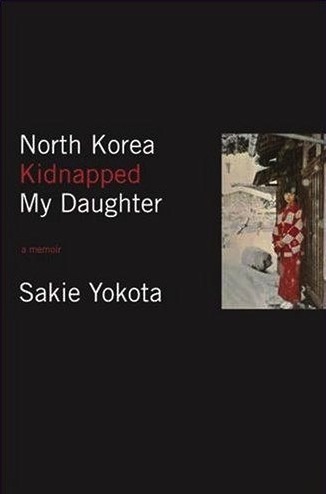 Adam Johnson's recently published novel The Orphan Master's Son is introducing many readers to the complex history and multi-layered culture of North Korea. If you'd like to learn more about the political and social climate of this country, here are some suggestions:
Adam Johnson's recently published novel The Orphan Master's Son is introducing many readers to the complex history and multi-layered culture of North Korea. If you'd like to learn more about the political and social climate of this country, here are some suggestions:
 Nothing to Envy by Barbara Demick: Demick's nonfiction work offers a remarkable insider's view of North Korea, as seen through the eyes of six ordinary citizens over fifteen years - a chaotic period that saw the death of Kim Il Sung, the unchallenged rise to power of his son Kim Jong Il, and the devastation of a far-ranging famine that killed one-fifth of the population.
Nothing to Envy by Barbara Demick: Demick's nonfiction work offers a remarkable insider's view of North Korea, as seen through the eyes of six ordinary citizens over fifteen years - a chaotic period that saw the death of Kim Il Sung, the unchallenged rise to power of his son Kim Jong Il, and the devastation of a far-ranging famine that killed one-fifth of the population.
 Bamboo and Blood: An Inspector O Novel by James Church: In the winter of 1997, trying to stay alive during a famine that has devastated much of North Korea, Inspector O is ordered to play host to an Israeli agent who appears in Pyongyang. When the wife of a North Korean diplomat in Pakistan dies under suspicious circumstances, O is told to investigate, with a curious proviso: Don't look too closely at the details, and stay away from the question of missiles.
Bamboo and Blood: An Inspector O Novel by James Church: In the winter of 1997, trying to stay alive during a famine that has devastated much of North Korea, Inspector O is ordered to play host to an Israeli agent who appears in Pyongyang. When the wife of a North Korean diplomat in Pakistan dies under suspicious circumstances, O is told to investigate, with a curious proviso: Don't look too closely at the details, and stay away from the question of missiles.
 Nuclear Showdown by Gordon Chang: Before his recent death, Kim Jong Il - or "The Great Leader", as he called himself - possessed an arsenal of nuclear weapons and ballistic missiles that had the potential to decimate almost any point on the planet, and North Korea said it might sell weapons to others, thereby making itself the first "nuclear Kmart". In Nuclear Showdown, Chang proposes solutions to this threat that go beyond the conventional suggestions seen elsewhere.
Nuclear Showdown by Gordon Chang: Before his recent death, Kim Jong Il - or "The Great Leader", as he called himself - possessed an arsenal of nuclear weapons and ballistic missiles that had the potential to decimate almost any point on the planet, and North Korea said it might sell weapons to others, thereby making itself the first "nuclear Kmart". In Nuclear Showdown, Chang proposes solutions to this threat that go beyond the conventional suggestions seen elsewhere.
 The Reluctant Communist by Charles Robert Jenkins and Jim Frederick: In January of 1965, twenty-four-year-old U.S. Army sergeant Charles Robert Jenkins abandoned his post in South Korea, walked across the DMZ, and surrendered to communist North Korean soldiers standing sentry along the world's most heavily militarized border. He believed his action would get him back to the States and a short jail sentence. Instead he found himself in another sort of prison, where for forty years he suffered under one of the most brutal and repressive regimes the world has known.
The Reluctant Communist by Charles Robert Jenkins and Jim Frederick: In January of 1965, twenty-four-year-old U.S. Army sergeant Charles Robert Jenkins abandoned his post in South Korea, walked across the DMZ, and surrendered to communist North Korean soldiers standing sentry along the world's most heavily militarized border. He believed his action would get him back to the States and a short jail sentence. Instead he found himself in another sort of prison, where for forty years he suffered under one of the most brutal and repressive regimes the world has known.
 North Korea Kidnapped My Daughter by Sakie Yokota: On November 15, 1977, 13 year-old Megumi Yokota disappeared without a trace while on her way home from school. Twenty years later a newspaper revealed she was abducted by North Korean operatives and was still in North Korea. Megumi and at least 13 others were taken from coastal cities in Japan during the 1970s and 80s, shoved into holding cells on spy vessels, and shipped off to North Korea to train agents in Japanese culture and customs. The perpetrators of the Korean Air Flight 858 bombing in 1987 posed as Japanese nationals thanks to such training.
North Korea Kidnapped My Daughter by Sakie Yokota: On November 15, 1977, 13 year-old Megumi Yokota disappeared without a trace while on her way home from school. Twenty years later a newspaper revealed she was abducted by North Korean operatives and was still in North Korea. Megumi and at least 13 others were taken from coastal cities in Japan during the 1970s and 80s, shoved into holding cells on spy vessels, and shipped off to North Korea to train agents in Japanese culture and customs. The perpetrators of the Korean Air Flight 858 bombing in 1987 posed as Japanese nationals thanks to such training.
 North Korea Kidnapped My Daughter is Sakie Yokota's memoir of the years without her daughter. I read this a couple of years ago and while the writing is workmanlike and the translation from the Japanese is not all it could be, the story Sakie Yokota tells is heart-breaking and important.
North Korea Kidnapped My Daughter is Sakie Yokota's memoir of the years without her daughter. I read this a couple of years ago and while the writing is workmanlike and the translation from the Japanese is not all it could be, the story Sakie Yokota tells is heart-breaking and important.
The image to the right is a nighttime satellite image of the two halves of Korea, showing North Korea cloaked in darkness while South Korea is brightly lit.